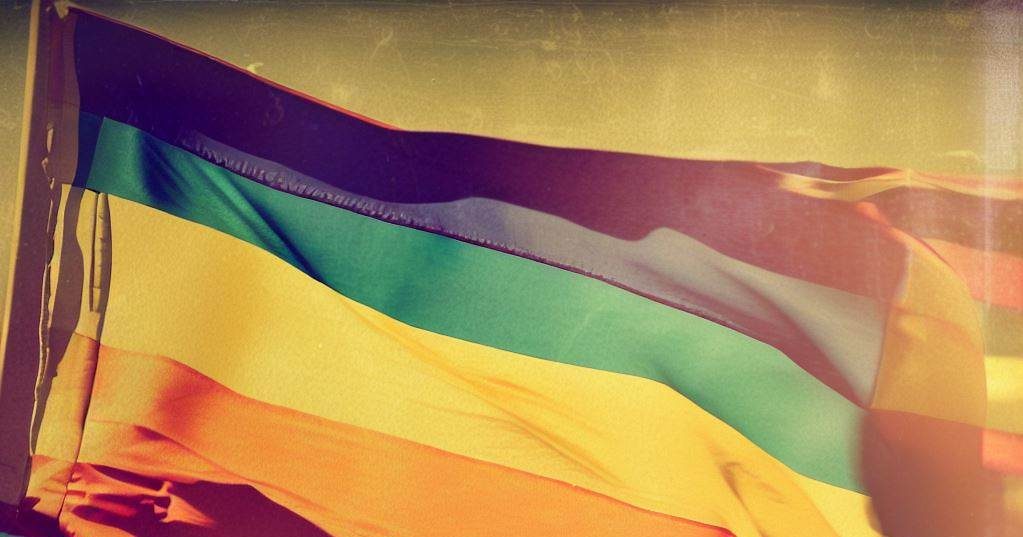Session organized as part of the 7th European Geographies of Sexualities Conference / EGSC 2024 https://2024.egsconference.com/ Brighton, UK / 02.09 – 03.09. 2024

Call for Abstracts:
Reimagining Bodies and Spaces: Queer and Feminist Perspectives on Censorship, Expression, and Normativity
Session organizers:
Michal Pitoňák, Queer Geography; National Institute of Mental Health (Czechia)
Michal.pitonak@queergeography.cz
Veronika Valkovičová, Institute for Sociology, Slovak Academy of Sciences
veronika.valkovicova@savba.sk
In a rapidly evolving social landscape where the dichotomy of expression and censorship takes center stage, we invite scholars, activists, and thinkers to contribute to a critical discussion at the European Geographies of Sexualities Conference. Our focal theme, „Reimagining Bodies and Spaces: Queer and Feminist Perspectives on Censorship, Expression, and Normativity,“ seeks to unravel the complexities of societal norms, intersectionality, and the power dynamics that shape both our understanding of freedom, equity, and diversity, as well as our bodies, spaces, and their perception.
We may often encounter a narrative that portrays a past replete with “order” and “simplicity,” which draws a stark contrast to today’s perceived chaos and decay in cultural norms (Edenborg, 2021; Graff & Korolczuk, 2022; Pitoňák, 2023). This nostalgic longing for a “sensible” past is frequently juxtaposed with contemporary concerns about political correctness, cancel culture, and a supposed crisis in freedom of expression (Browne et al., 2021; Nash et al., 2021). Such discourses, often labeled conservative or illiberal, reflect societal changes and impact our lived experiences and abilities to express ourselves freely (Browne & Nash, 2017; Paternotte & Kuhar, 2018). However, have these narratives influenced our everyday lives, particularly in public spaces? How are spaces impacted by censorship policies and discourses? To what extent have they affected our actual and experienced freedoms? Are we freer or less free? What is the relationship between the one who censors, the one who is censored, and the one who says they are afraid of censorship? How does this discussion of censorship relate to emancipation of our bodies, genders, and freedoms of expression – who is freer and who is less free?
In this session, we particularly invite submissions that may explore the following:
- Spatial dynamics of (freedom) of expression and censorship:
- Examining how public and private spaces influence and/or are influenced by the dynamics of censorship and freedom of expression.
- Analyses of spatial heterogeneity in the experiences and impacts of ‚cancel culture‘ and political correctness.
- Geographies of gender normativity and resistance to it:
- Exploring spatial variations in the experiences of individuals conforming to or challenging normative gender expectations.
- Delving into the ways spatial contexts shape and are shaped by intersecting identities and power relations.
- Assessing how public and private spaces are negotiated and contested in the pursuit of equity and diversity.
- Spatial politics of morality and ideological backlashes:
- Analyses of geographic dimensions of morality politics, focusing on “gender ideology”, morality entrepreneurs and their roles in the current “anti-LGBTQ+ backlashes”
- Examining the role of public and private space, comfort and sources of ontological (in)security or epistemic uncertainty in the emergence and resistance of “morality entrepreneurs” wider or global “morality geopoliticians”.
Submission Guidelines
We welcome abstracts that engage critically with these themes, incorporating queer and feminist theoretical frameworks. Abstracts should be grounded in scholarly research related at least partially to geographical thinking and offer innovative perspectives or empirical studies contributing to our understanding of these complex issues. Submissions should be around 250 words, written in an academically rigorous yet accessible style; we accept contributions in all languages.
Submit your abstracts before February 29th to either of our emails:
Michal.pitonak@queergeography.cz
veronika.valkovicova@savba.sk
References:
- Browne, K., Brown, G., & Nash, C. J. (2021). Geography and sexuality II: Homonormativity and heteroactivism. Progress in Human Geography, 45(5), 1320-1328. https://doi.org/10.1177/03091325211016087
- Browne, K., & Nash, C. (2017). Heteroactivism: Beyond Anti-Gay. ACME: An International Journal for Critical Geographies, 16(4), 643-652. https://acme-journal.org/index.php/acme/article/view/1631
- Edenborg, E. (2021). ‘Traditional values’ and the narrative of gay rights as modernity: Sexual politics beyond polarization. Sexualities, 26(1-2), 37-53. https://doi.org/10.1177/13634607211008067
- Graff, A., & Korolczuk, E. (2022). Anti-Gender Politics in the Populist Moment. Taylor & Francis.
- Nash, C. J., Gorman-Murray, A., & Browne, K. (2021). Geographies of intransigence: freedom of speech and heteroactivist resistances in Canada, Great Britain and Australia. Social & Cultural Geography, 22(7), 979-999. https://doi.org/10.1080/14649365.2019.1652929
- Paternotte, D., & Kuhar, R. (2018). Disentangling and Locating the “Global Right”: Anti-Gender Campaigns in Europe. Politics and Governance, 6(3), 6-19. https://doi.org/10.17645/pag.v6i3.1557
- Pitoňák, M. (2023). LGBT+ Activism and Morality Politics in Central and Eastern Europe: Understanding the Dynamic Equilibrium in Czechia from a Broader Transnational Perspective. In Activist Feminist Geographies (pp. 94-119). Bristol University Press.








